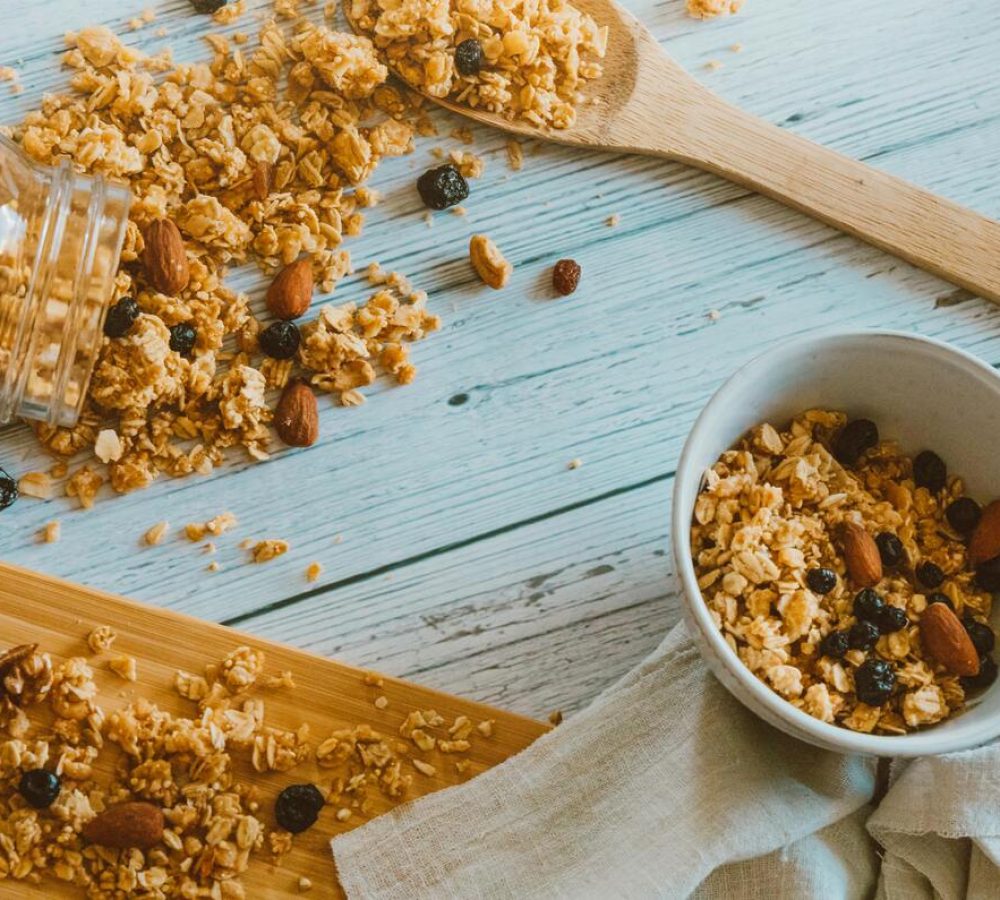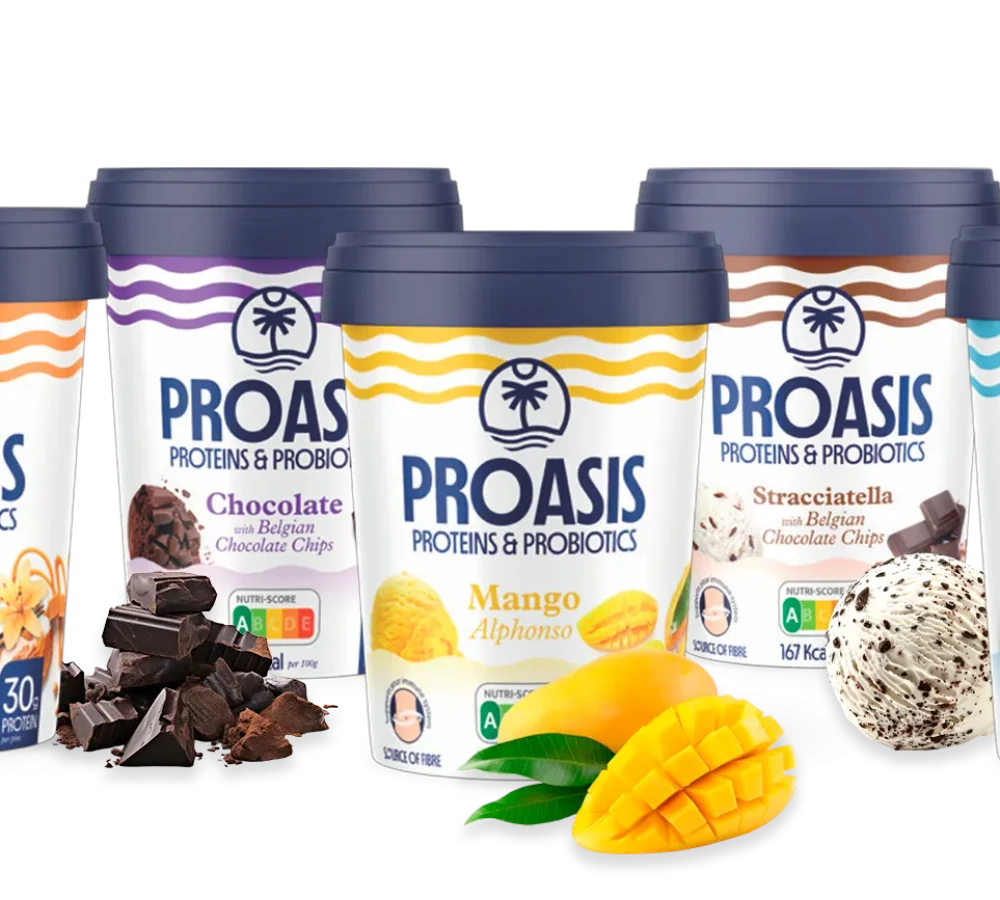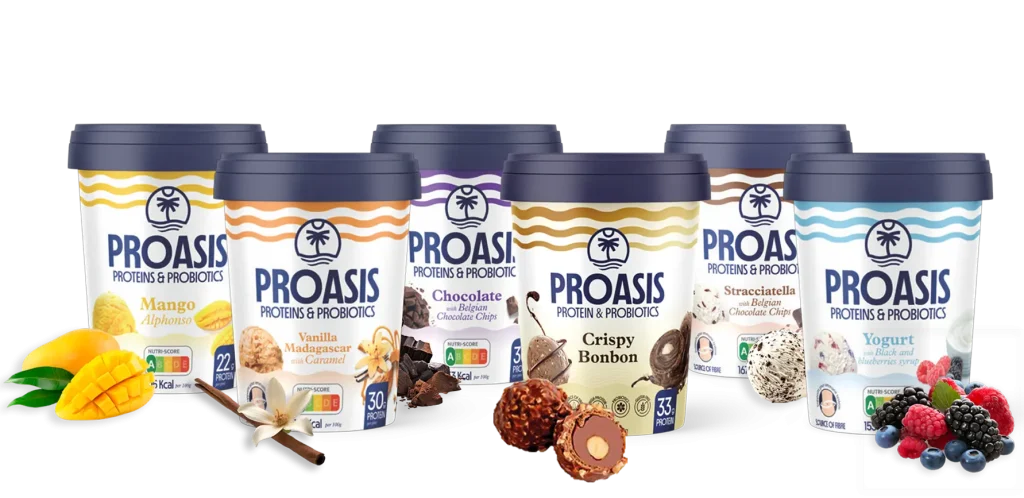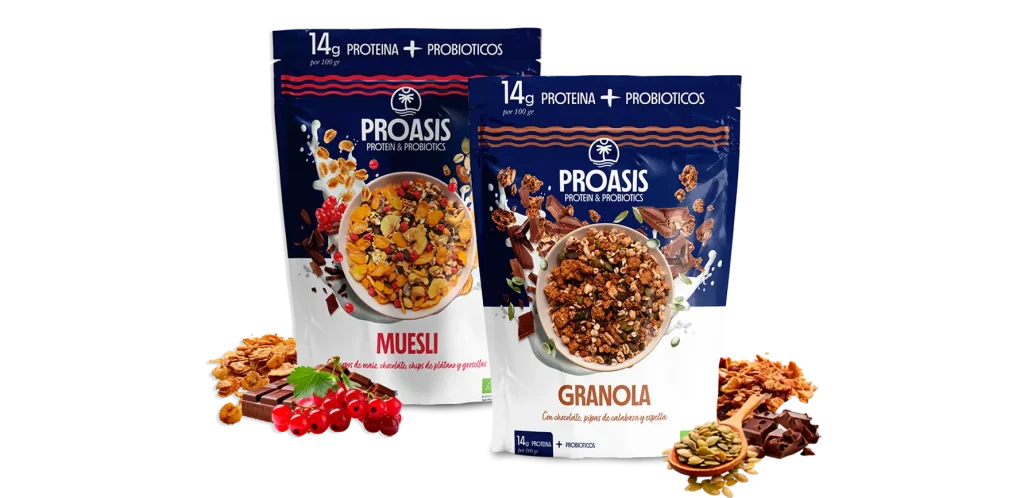Protein intake in older adults is essential for preserving muscle mass and maintaining mobility, independence, and quality of life. As we age, good health becomes a priority. Did you know that after the age of 50, muscle loss accelerates? After age 50, muscle mass decreases by 1–2% annually if no preventive action is taken.
High-quality proteins can make a big difference in preserving muscle mass. They also help strengthen the immune system and support gut health, playing a key role in staying active and energized. Below, we’ll explore how to choose the best sources and how to incorporate them effectively into your routine to maximize their benefits.
Why are proteins essential for muscle mass in older adults?
As we age, our bodies go through changes that may affect health and well-being, such as muscle loss, known as sarcopenia. Muscle recovery with proteins and probiotics is crucial to fight this process, as they provide the amino acids needed to maintain and repair muscle tissue.
Preserving muscle tissue also enhances strength, improves balance, and reduces the risk of falls. It contributes to a healthy metabolism, which is key to maintaining energy and vitality. Eating high-quality protein daily can make a real difference in your quality of life.
Natural body changes with age
Sarcopenia is an inevitable change, characterized by progressive loss of lean mass along with increased fat mass and reduced strength. This condition affects metabolism, slowing it down, and impacts the body’s ability to process nutrients efficiently. Therefore, it is essential to consume key nutrients such as proteins and probiotics to support both physical and emotional health.
Benefits of protein for older adults
Sarcopenia is a major and potentially reversible cause of functional decline and disability. Muscle mass and proteins are key to preventing falls, improving mobility, speeding up cell repair, and maintaining healthy skin.
Ideal protein sources for seniors
Choosing the right protein sources for older adults is vital. Go for low-fat foods rich in essential nutrients. For those seeking convenient alternatives, our protein supplements offer an easy and effective solution. They are also formulated to be easy to digest, promoting overall wellness.
Practical and tasty options
Looking for ways to include more protein for older adults in your daily diet without compromising on taste? We offer practical and delicious options you can enjoy with ease. Our ice creams, such as Belgian chocolate chip or Madagascar vanilla with caramel, are perfect as a healthy treat. These are our easy-to-consume, protein-rich foods.
- Belgian chocolate chip ice cream
- Alphonso mango
- Madagascar vanilla with caramel
- Stracciatella with Belgian cocoa chips
- Yogurt with forest fruit syrup
- Granola
- Muesli
How to include more protein for seniors in your daily diet
Adding protein to your diet can be simple, tasty, and healthy, because it’s essential to maintain muscle mass, especially as we age. Start your day with scrambled eggs or Greek yogurt. Throughout the day, include lean protein sources such as egg whites, white fish, canned tuna, cottage cheese, and chicken. You can also enjoy snacks between meals to maintain your energy levels. Our supplements are a practical and effective option to ensure you’re getting these essential nutrients with ease.
Daily practical tips
To include more protein in your routine, plan your meals in advance. Include a protein source in every meal and snack. Choose portable snacks such as protein bars or nuts. If you have a sweet tooth, our high-protein ice creams are a delicious option. You can also enjoy a shake after physical activity to support muscle recovery. These small changes can have a significant impact on your overall health.
The importance of variety
To get all the essential amino acids your body needs, vary your protein sources and combine them with probiotics. This way, you can enhance digestion and absorption, maximizing the benefits. For example, our yogurt with forest fruit syrup is not only delicious but also supports gut health thanks to its live cultures.
You can also share proteins and probiotics with your family. By diversifying your protein sources, you’ll enrich your diet while enjoying a more complete and satisfying culinary experience.
Proteins for seniors are essential to preserve muscle mass and support healthy aging. Choosing foods rich in this macronutrient helps keep you strong and active. We encourage you to try our products designed for older adults who care about their overall well-being.
References:
- Ferran Masanés Torán et al. What is sarcopenia? Seminarios de la Fundación Española de Reumatología. Vol. 11. No. 1. Pages 14–23 (Jan–Mar 2010). DOI: 10.1016/j.semreu.2009.10.003. Available at: https://www.elsevier.es/…
- Mayo Clinic. Healthy Lifestyle. Strength training. April 29, 2023. Available at: https://www.mayoclinic.org/…
- Ian Janssen et al. Low relative skeletal muscle mass (sarcopenia) in older persons is associated with functional impairment and physical disability. J Am Geriatr Soc. May 2002;50(5):889–96. DOI: 10.1046/j.1532-5415.2002.50216.x. Available at: https://pubmed.ncbi.nlm.nih.gov/12028177/
- Best sources of lean protein and their benefits. Discapnet. Last updated: August 28, 2024. Available at: https://www.discapnet.es/…
- Harvard Health Publishing. The benefits of probiotics bacteria. June 7, 2017. Available at: https://www.health.harvard.edu/…








